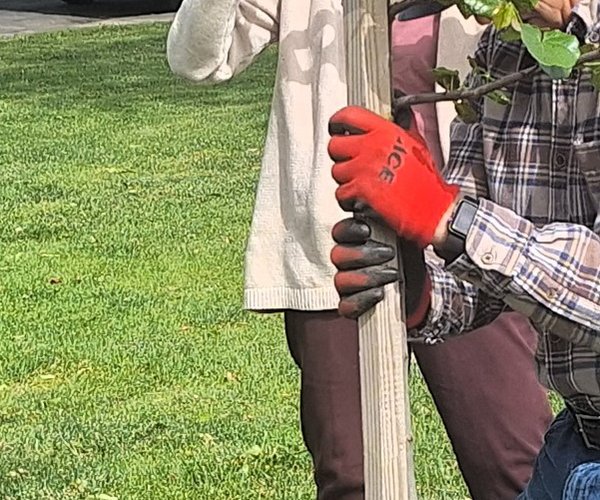New garbage rates targeted to go into effect in mid-July means existing residents will no longer be subsidizing growth when it comes to garbage services.
That’s because the proposed rate schedule includes a new service initiation impact fee of $750.84 for every new housing unit.
The figure represents the cost of purchasing three 96-gallon carts, assembling them, and then delivering them.
It also reflects a new home’s proportional share of an additional solid waste truck purchase for $500,000 based on three pickups a week as the city is switching to collect recycling as well as green waste/organic waste carts weekly instead of alternate weeks.
Such a fee — that has never been collected — represents a significant policy shift for the city.
And in doing so, it is likely to blunt the next five-year rate increase that — if the city adheres to what is considered sound fiduciary practices — would go into effect for 2028-2032 after the current proposed rate hikes are fully implemented on Jan. 1, 2017.
Had the fee been in place in 2022, Manteca would have collected $656,250 when a building permit was issued for the 875 single family homes built last year.
As such, it translates into $656,250 that existing solid waste ratepayers paid.
And that — despite what previous councils and city management routinely assured the public in the past — means growth wasn’t paying its own way.
The proposed solid waste rate increase that is the subject of a May 16 protest hearing, also includes two other elements designed to cover all costs that the city incurs.
Collapsed into the rate is a 50 cent charge per household for wear and tear solid waste trucks place on neighborhood streets. That will raise $150,000 a year for the city’s street fund.
There is also $200,000 a year built into the proposed rate schedule to hire tree trimming services.
Low hanging tree branches damage both the trees and trucks when the trucks come into contact with them.
The council at the time the solid waste study was commissioned — as well as similar studies in the process of being wrapped up and presented to elected leaders to adopt new charges for water and sewer service — directed that all expenses be addressed in new rates.
The directive was inspired by the $64 million bookkeeping mess they inherited that was rooted in the financial department operation going off that rails and what could best be described as a lack of effective oversight from the city manager’s office in previous years when it came to daily municipally operations.
Although no funds were stolen, the accounting snafu that is in the final stages of being ironed out as audits are now almost current meant there was no firm grasp on municipal finances.
Steps taken to clean up the mess revealed municipal utility service rates hadn’t been increased for years, there was inadequate budgeting of funds to do some projects, some projects were double budgeted in different years, and the general ledger wasn’t being kept current.
The bottom line — under then mayor Ben Cantu — was for the city to stop kicking the proverbial can down the road.
That meant having the political will not to pare back or delay rate increases as had occurred in the past in a perceived appeasement of the electorate.
And in doing so that would mean municipal services would be adequately funded without interfund borrowing that, as an example, took money from road projects to cover shortfalls. That money under law has to be paid back to the fund it was collected for with interest.
The result was artificially low sewer and water rates as well as the city delaying projects to upgrade streets and other infrastructure. While construction inflation cannibalized the purchasing power of growth fees collected for specific purposes.
The new rates expected to go into effect as early as July 16 coincides with all residential customers going to 96 gallon carts. That will take the current $34.33 charge for a 96 gallon cart up $13.08 to $47.41 a month.
Then in the next four years:
*On Jan. 1, 2024, the rate will go up $3.51 to $50.92.
*On Jan. 1, 2025, the rate will go up $3.76 to $54.68.
*On Jan. 1, 2026, the rate will go up $4.04 to $58.72.
*On Jan. 1, 2036, the rate will go up $4.35 to $63.07.
The rate for the basic roll off box pull for commercial accounts is now $656.44 a month.
It will go to $762.69 a month on Jan. 1, 2024, $845.82 a month on Jan. 1, 2025, $938.01 a month on Jan. 1, 2026, $1,040,26. a month on Jan. 1, 2026, and $1,153.65 a month of Jan. 1, 2027.
To contact Dennis Wyatt, email dwyatt@mantecabulletin.com





